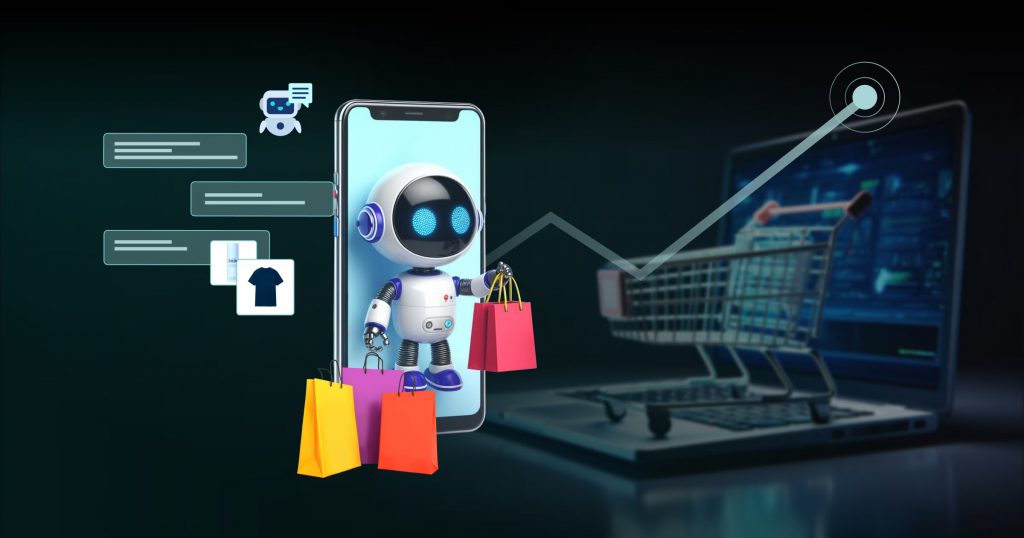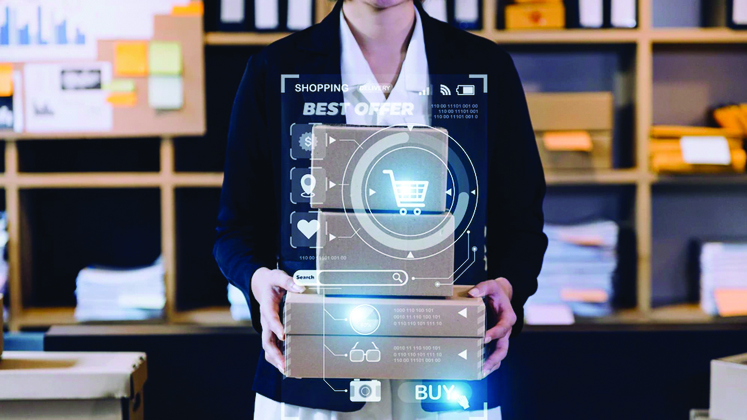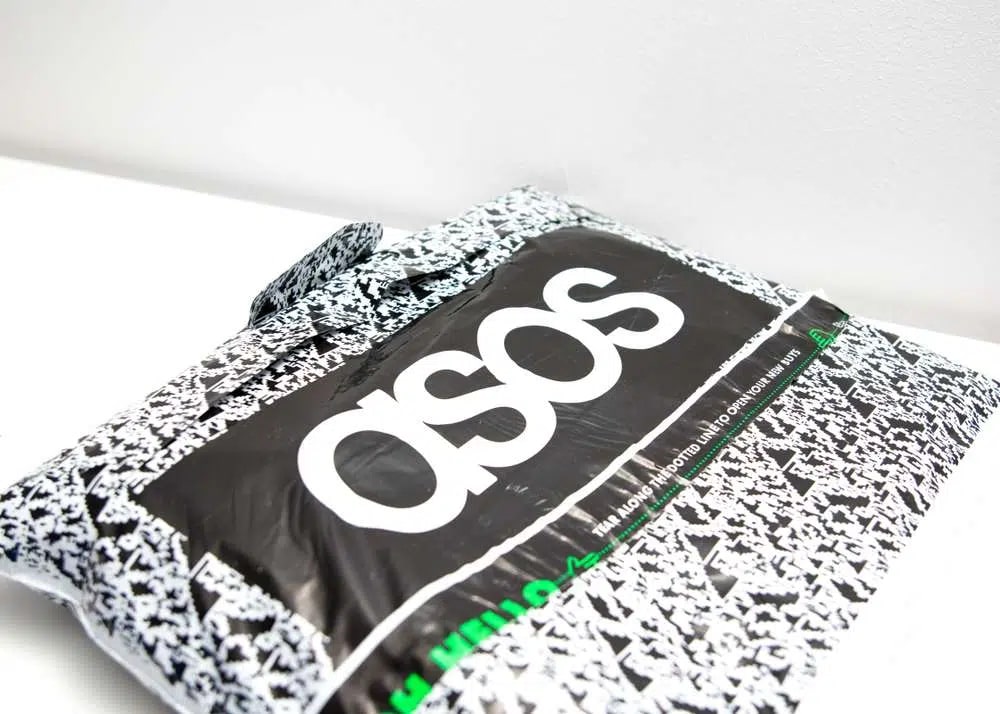Juphy’s Weekly E-Commerce News Express – 09-13 September 2024
Ceyda Duz
In this week’s e-commerce and AI news roundup, we bring you the latest insights from the rapidly evolving world of online shopping. This edition highlights the promises, progress, and challenges of AI in e-commerce, explores Asos’s new return fees for high-volume returners, and covers new updates from Shopify, Roblox, Amazon, and Cymbio. Stay informed on the hottest topics and breakthroughs shaping the future of retail, online business, and e-commerce technology. Dive in to catch up on the most significant developments and advancements in the industry.

AI in E-Commerce: Promises, Progress, and Challenges
Since last year, AI has been rapidly gaining momentum as retailers seek to enhance personalization, streamline product discovery, and increase sales. E-commerce platforms and tech providers are heavily investing in artificial intelligence to reshape the customer shopping experience. Many companies are actively developing AI-powered tools tailored for online businesses. According to a 2024 report by Coveo, 72% of consumers expect their online shopping experience to evolve with generative AI, while 31% anticipate using virtual assistants to guide them through purchasing decisions.

AI-powered shopping assistants, in particular, have emerged as a popular tool, helping customers find products, answer questions, process orders, and even track returns. Early results are encouraging, with many retailers reporting improved customer engagement and overall satisfaction. One of the most significant advantages of these assistants is their ability to deliver hyper-personalized experiences, making customers feel more understood and valued. Studies show that these tools can extend session durations by up to 30% and improve click-through rates by 15%-25%. By offering tailored product recommendations and allowing users to ask open-ended questions, AI chatbots provide a more interactive and engaging shopping experience. This personalized approach can foster customer loyalty, increase conversions, and ultimately drive higher sales.
However, the adoption of AI shopping assistants comes with its challenges. Despite the promise of these tools, many retailers remain cautious due to the high implementation costs and the complexity of training AI systems. Poorly tested AI tools, in particular, can lead to inaccurate or inconsistent information, damaging a brand’s reputation. Missteps, such as offering incorrect discounts or providing contradictory details, can result in legal issues and erode customer trust.

While AI shopping assistants offer significant potential to transform the e-commerce landscape, their overall effectiveness remains to be fully realized. Adoption is still in its early stages, and many retailers are waiting for more concrete data before committing to the technology on a larger scale. As these tools continue to evolve, businesses will need to carefully weigh the benefits against the risks, ensuring they have the proper infrastructure to meet consumer expectations.
AI shopping assistants represent a powerful avenue for driving personalization and enhancing customer engagement. However, retailers must navigate challenges related to implementation, testing, and data management. As generative AI becomes more integrated into e-commerce, it is likely to play an increasingly critical role in shaping the future of online retail for both businesses and consumers. For now, retailers must strike a balance between innovation and caution as they explore the vast potential of AI while mitigating the risks associated with its early development.
Asos Implements Return Fee for High-Volume Returners
Asos, the popular UK-based online fashion retailer, has announced a new policy aimed at reducing its high return rates. It will introduce a return fee for customers who are considered frequent returners. This move, effective October 8th, has sparked widespread reaction, especially from shoppers on social media.

The new return fee will target customers identified by Asos as having a high return rate, including those in the loyalty program. These shoppers will be charged £3.95 if they return items and keep less than £40 worth of goods from their order. However, if the retained items total £40 or more, returns will remain free. Loyalty members can continue to enjoy free returns as long as they keep at least £15 worth of products from their purchase.

Asos made the change to sustain its free returns policy for the majority of customers, stating that the frequent returns of some shoppers had made offering unconditional free returns unsustainable. This decision comes after Asos reported an 18% drop in turnover in the first half of 2024, driven by a shift in consumer behavior, with more UK shoppers returning to physical stores and increased competition from fast-fashion players like Shein and Temu.
This policy highlights the growing challenge of managing returns in e-commerce, especially in the fashion industry, where return rates can be as high as 44%. For retailers like Asos, balancing the need to reduce return costs while maintaining customer satisfaction is important. With consumer reactions mixed, it remains to be seen how this change will impact the retailer’s relationship with its customer base and bottom line.
Shopify and Roblox Partnership
Shopify has unveiled a strategic partnership with Roblox, marking a significant step in merging e-commerce with gaming. Set for a major rollout in early 2025, Shopify will integrate its Checkout system directly into Roblox, enabling developers, creators, and brands to sell physical products seamlessly within the gaming environment. This new feature allows businesses to reach Roblox’s vast user base, which includes nearly 80 million daily active players, without requiring them to leave the platform.

Amazon Teams Up with Covariant to Enhance Robotic AI Models

Amazon has announced a new collaboration with Covariant, a Bay Area firm specializing in advanced AI models for robotics. Under this agreement, Amazon will gain a non-exclusive license to Covariant’s cutting-edge robotic foundation models, which will aid in developing more sophisticated and efficient robotic systems for warehouse automation. To facilitate this integration, a team of Covariant’s research scientists and engineers will join Amazon’s fulfillment technologies and robotics team.
Cymbio’s Cymagery AI to Streamline Product Content Management
The marketplace and dropship automation platform Cymbio has introduced Cymagery AI, a comprehensive suite designed to simplify and accelerate product content uploads. Cymagery AI automates various aspects of product marketing, including image uploads and copyright compliance checks. The platform offers features such as automatic adjustments of image size and file names, background removal, image expansion, AI-generated swatches, and format conversion.

Customize Your Brand with Juphy: Your Go-To AI Agent
The excitement around AI agents is undeniable, and if you’re considering adding one to your online store, now is the time to take charge of this e-commerce evolution. Don’t let concerns about customization hold you back – Juphy’s ChatGPT-powered Agent for Shopify is here to help!
Juphy AI offers seamless and limitless customization options, allowing you to tailor the assistant to perfectly match your brand’s style and identity. With a wide range of themes to choose from, integrating a uniquely styled AI Agent into your Shopify store is both effortless and efficient. Once set up, you can sit back and watch as your sales soar to new heights. Experience the power of Juphy AI and transform your Shopify store with a shopping assistant designed just for you.
Try Juphy AI today: apps.shopify.com/juphy

Key Takeaways
AI in E-Commerce: AI is transforming e-commerce with advancements in personalization, product discovery, and sales enhancement. Retailers are investing heavily in AI-powered tools like shopping assistants, which are improving customer engagement and session durations. Despite their potential, challenges such as high implementation costs and training complexities remain. Retailers are cautious, awaiting more data before broad adoption.
Asos Implements Return Fee: Asos introduces a new return fee effective October 8th, targeting frequent returners. Customers who return items and keep less than £40 worth will incur a £3.95 fee, while those keeping £40 or more will continue to enjoy free returns. This policy aims to manage return costs and sustain the free returns policy for the majority of customers.
Shopify and Roblox Partnership: Shopify partners with Roblox to integrate its Checkout system within the gaming platform. This upcoming feature, launching in early 2025, will enable brands to sell physical products directly to Roblox’s large user base, blending e-commerce with gaming seamlessly.
Amazon Teams Up with Covariant: Amazon collaborates with Covariant to access advanced AI models for robotics, aiming to improve warehouse automation. The partnership includes integrating Covariant’s models into Amazon’s systems and bringing Covariant’s experts into Amazon’s team to enhance robotic efficiency.
Cymbio’s Cymagery AI: Cymbio launches Cymagery AI, a tool to accelerate and simplify product content uploads. It automates image adjustments, copyright compliance, and content management, aiming to enhance efficiency in product marketing.

